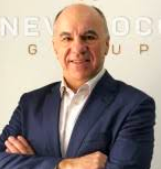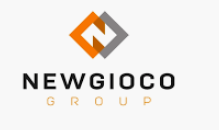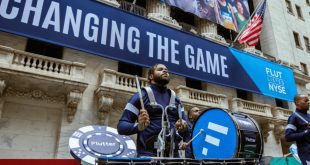
Newgioco Group Chairman and CEO Michele (Mike) Ciavarella has led an eight-year project to launch the Italian legacy outfit in the US, seeking to be the best-prepared technology incumbent tackling the world’s biggest and most diverse sports market.
Speaking to SBC, Ciavarella details that technology stakeholders will face a rude awakening if they simply ‘copy-paste’ European strategies to US market realities, as all reputations are placed on the line in betting’s new horizon.
____________________
SBC: Mike thanks for this interview. Can you detail to SBC readers Newgioco’s unique corporate journey, from operating an established Italian betting network to becoming a US Nasdaq enterprise?
Mike Ciavarella (Chairman & Group CEO Newgioco): Newgioco is comprised of a highly talented management and business administration team with over 20 years of experience in the highly contested Italian regulated betting market.
During those formative years, we determined that all existing legacy betting technology platforms, although each having slight differences between them, lacked a common feature that is critical to be able to perform best in managing sports bet risk. In 2017, we launched our state-of-the-art Elys Gameboard Platform which has proven itself in the tough Italian market as a highly effective and powerful technology, purpose built for the sports betting industry.
Once, we coupled Elys with our mobile and retail market know-how in Italy, we knew we had something special and that we could replicate this powerful combination around the world. To that end, becoming the first pure-play leisure betting company listed on the Nasdaq stock market was a key milestone for Newgioco.
Our Nasdaq listing now provides the highest level of corporate transparency not only to potential clients in the US and around the world but to fundamental investors that also see the massive opportunities for an enterprise like Newgioco with a disruptive technology in one of the largest global industry sectors.
SBC: You have led Newgioco for eight years. Why change the company’s strategy so drastically to compete within the US market?
MC: Interestingly, we had established the plan to build for the US sports betting market in late 2013 while development for Elys was underway. We simply keep the strategy under wraps.
In fact, for the first few years until Elys was ready for market we used a cover name for the company. I recall several instances early on of presenting our plan with investment bankers in New York and strangely being asked – “Isn’t sports-betting illegal?” During those first few years we made numerous press releases hinting at our US readiness plan for when the market “liberalised”.
That said, the industry understood that the passion and enthusiasm for American sports could only be repressed for so long and that prohibition would ultimately fall as it did in May 2018. So, the Newgioco strategy was built to compete in the US market from inception as a pure-play leisure betting technology company.
Importantly, our deployment strategy includes allowing the US market to develop on both a regulatory and consumer demand basis so that we as a company and business can intelligently deploy the right product for the market rather than using a tweaked European product.
To that end, we have been coding our US or “American” platform so that our Elys technology can think better in the US market once we start trading. Part of that is not just the UX, but also the risk assessment algorithms as well as our plan to have a US trading floor specifically for managing risk in the US market. Newgioco is well down the field on this development and will be in a strong position with our first US roll out once sports leagues get back up and running.
SBC: Still in very much its infancy stage, what unique market intricacies are you witnessing within the US market?
MC: The most glaring observation is that many operators are learning the hard way that a “sports bet” as a commercial product is like no other product in the world.
You cannot run a sports betting business like you run an online business selling items like most consumer goods. Sports betting is the only product in the world where the operator competes with their client. And many times, the client (the bettor) is much smarter than you.
Spending hundreds of millions simply to obtain market share is great to make a name for yourself and for bragging rights, but sports betting is “not a popularity contest”, its serious competition between operator and customer where as an operator you can lose against a good player. And loses are what several new operators in the US are incurring.
SBC: As a tech incumbent, are you surprised at the way a liberalised US market has taken shape? There appears to be some very convoluted deals and partnerships at play?
MC: Yes indeed, as I mentioned, sports betting is a unique commercial product, in fact sports betting is not a casino product, nor is it a lottery product, it’s a high risk product which means that casino operators and state lottery corporations may not necessarily the best companies to run the sports betting business. Many state regulators and enterprises including national sports leagues are tying sports betting to casinos and state lotteries.
That is quite remarkable, when in many cases, but not all, those entities have no experience whatsoever in sports betting. In my opinion, that could be a recipe for disaster. I think a lot of lessons can be learned from the UK and Europe, especially when it comes to handing over exclusivity deals in sports betting that are the worst possible disaster for the public, and will have the opposite effect to market regulation in the long run.
SBC: Amongst US stakeholders, is there a worry at the lack of strategic creativity being undertaken by market players?
MC: I believe so, but understanding the underlying reason is the main point. Again, I believe that the traditional big business approach of “marketing over matter mentality”, such as exclusivity deals that award the deep-pocket entities, is not the winning solution for long term sustainability in a sports betting business. Instead, what is needed is a core technology that can manage sports bet risk while providing a specific U.S. user experience, not a European UX with some tweaking to make it appear American.
This is not very simple to appreciate from the general eye, but I will try – the analogy to use is automobile manufactures building cars for the UK market with a ‘right-drive’ versus building the same model with a ‘left-drive’ for the US. Everything is reversed, although it’s possible to navigate the right-drive car in the US, it gets challenging.
The same holds true for sports betting, European lines move differently than US lines, furthermore, some individual US sports have unique betting nuances compared to the same event posted in other markets. The technology must be able to react to these nuances, otherwise, you can have an accident, like driving on the wrong side of the road.
SBC: At a consumer level, what do you feel are the US market’s relevant unknown dynamics. How prepared are incumbents to tackle these issues?
MC: Think of it this way – understanding a sports bet as a product, the first thing you do is offer your customer a set of odds based on the potential future outcome of an event, once the sale is executed you now carry a risk as the product you sold, meaning that if the customer comes back, they are not returning the product based on the outcome, they are actually coming back to collect. What if during the event, a key player gets injured which changes the entire spectrum of the outcome? Its too late, you are on the hook and that customer will most likely be back. Many new US stakeholders new to sports betting are finding this out the hard way.
SBC: Competing within a disrupted market, Newgioco has placed its ELYS system as its flagship product. What new dynamics does ELYS want to deliver to its US incumbents?
MC: The unique feature of Elys is its industry-tailored ‘POS level risk assessment module’. Our Elys platform was designed and purpose-built in the Italian sports betting market where, like American bettors, our clients are passionate about their favourite teams and athletes, but they also truly understand the event and the possible outcomes.
Further, aside from the passionate bettor, we also have the “sharp” that seek to arbitrage odds against the bookmaker. Therefore, technology is critical. Specifically, the analogy here is that bookmakers used to be a person (still is in some cases), with a book and a pencil, that would assess the risk and negotiate the bet with the player before taking the sale.
This all changed with the internet when our industry went online through technology. Most betting platforms did not have the ability to filter the bet like a bookmaker would, instead, all bets get processed and the risk is laid-off at the back end. Some platforms have recently added features now used to prevent some bets by blocking players, however, the Elys architecture is designed to act before the bet enters the system.
This dynamic feature provides operators a betting platform that thinks like a bookmaker by assessing and negotiating the bet before it gets into the book. This allows an operator to run a sports betting business with a better semblance of risk management to level out their commercial expectations from the sports bet product.
SBC: Finally, betting has entered a new decade. What big ideas should the industry embrace, and what legacy values should incumbents drop?
MC: The challenge with legacy platforms in our industry is that version changes, product evolutions, the advent of new events and so on created new legacy layers on the technology stack over the years. We are all very familiar with the rapid pace and evolution of new technologies and browsers for internet access, so it stands to reason that the bigger a company gets and the more they expand around the globe on their core technology built 20 years ago, the more challenging it would be to manoeuvre with new technologies, especially in this age of fast-changing 5G and other network super features-
In my opinion, as the industry moved to a technology-based business, rather than a book and pencil, the industry has made offering a great variety of in-game bets and other features such as “cash-out” and so on, whilst capitalising on tech features to embrace user experience as a method to attract players as a priority. That was great when most operating jurisdictions were unregulated and the margins were bountiful, however, I think more than anything, as the industry regulates around the world, more emphasis needs to be placed on product economics, specifically through the use of pro-active and adaptive risk-management so that operators can manage their sports betting business actually like a business rather than a guessing game.
____________
Michele (Mike) Ciavarella – Chairman & CEO Newgioco Group










